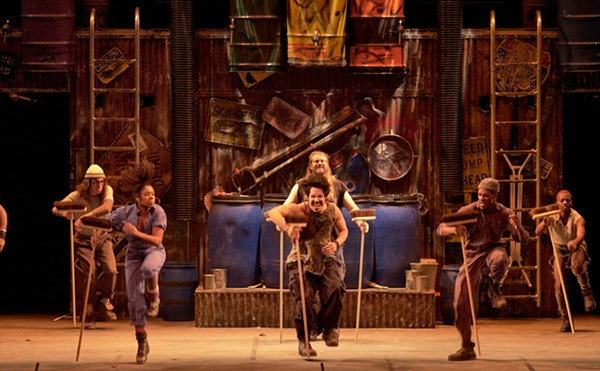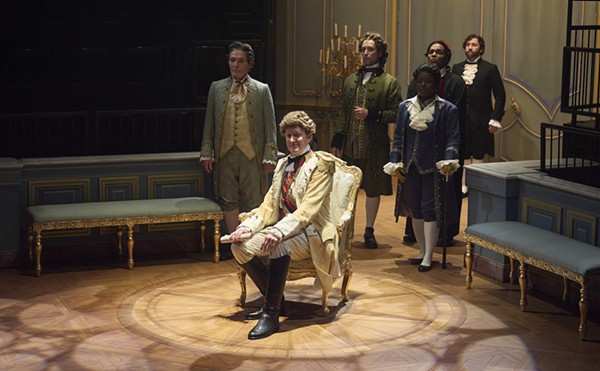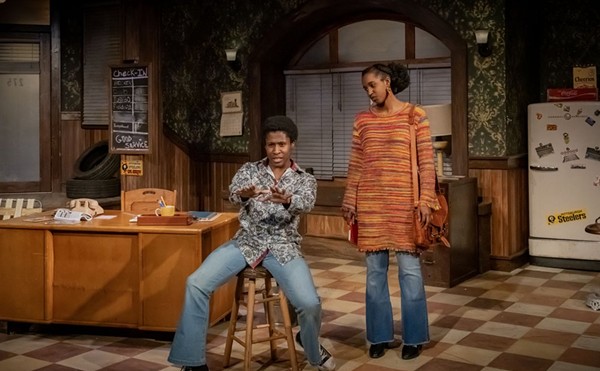"I do bring that fact up occasionally," Flohr laughs. "Actually, as a director who's not Ukrainian, I'm drawn to this piece because the poetry of it is so universal. Nadia opened up this whole world to me." Shadows of Our Forgotten Ancestors plays Friday, January 25, through Sunday, January 27, at Cleveland Public Theatre.
The piece is based on Mykhailo Kotsiubynsky's Shadows of Forgotten Ancestors, which is considered "the Romeo and Juliet of the Ukraine," Flohr says. "It's one of the great novels of Ukrainian literature." Ivan and Marichka are the star-crossed lovers from feuding families in a tale set against the Carpathian Mountains.
Flohr and Tarnawsky's work, however, is a "fusion of dance and theater, told in English and Ukrainian, sometimes simultaneously," Flohr says. Puppetry also figures into the production. "Everything that happens between the two leads is told through modern dance, which is based on fragments of traditional Ukrainian folk," he explains. "Anything in the public realm, like weddings or things that have ritual, are told through folk dance."
Surprisingly, it was Tarnawsky -- the one who speaks the language fluently -- who faced creative struggles with Shadows. "I really get tied up in words," she says. "I want them to be right, and my biggest challenge was finding the right English words that would match the Ukrainian words. I'm very particular about words I use and whether or not it has a nice flow. That took a while, because I really didn't want to lose anything in the translation."
Still, Flohr believes the work can be grasped by just about anyone. "All of our cultural backgrounds have huge chunks of ritual and ways of expressing who we are," he says. "And every year, more and more of it disappears, as the elder population dies off. So much of this show is about love and the strength of love to even exist in times of war, grief, and hardship. In this year, it's a great story of hope. It's such a universal theme."
"I don't want anybody to be scared because it's bilingual and the music is Ukrainian folk music," Tarnawsky says. "Between the dancing and the puppetry, it really is a visually stunning piece that can pretty much appeal to just about anybody.
"It really is a story that everybody can relate to in some way."











